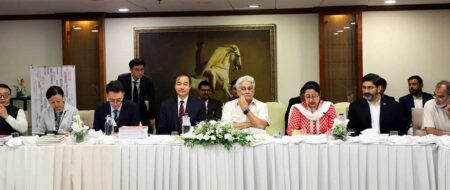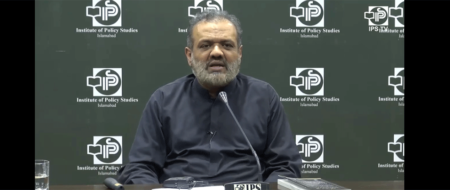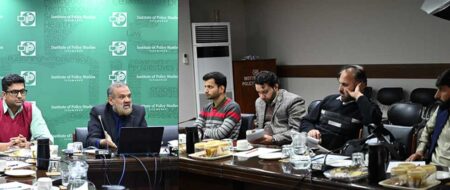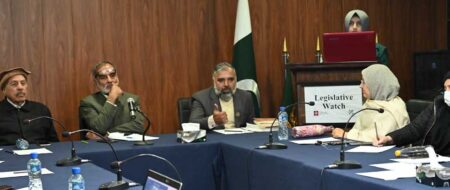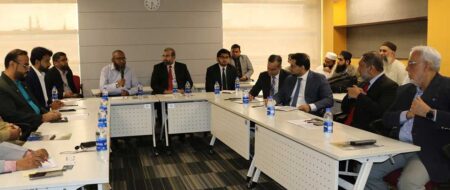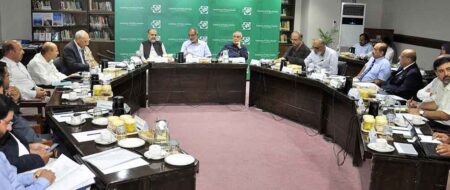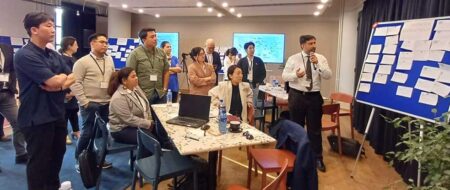Inaugural meeting of IPS’ study ‘Islamic Social Finance for Social Protection’
Study group at IPS to work on social protection policy based on Islamic welfare model
A study group of relevant experts and stakeholders formed by the Institute of Policy Studies (IPS) – in collaboration with the Council of Islamic Ideology (CII) – will help develop an effective Islamic social finance model for sustainable social protection that can realize the dream of an Islamic welfare state in Pakistan.
The extensive one-year study will conclude with concrete policy recommendations and draft legislation for the federal, provincial, and local levels.
Held on December 24, 2021, the inaugural meeting of the project titled ‘Islamic Social Finance for Social Protection’ was co-chaired by Dr Ikram-ul-Haq Yaseen, secretary, Council of Islamic Ideology (CII) and Dr Muhammad Tahir Mansoori, former vice president, International Islamic University, Islamabad.
The session was addressed, as main speakers, by Khalid Rahman, IPS’ chairman, Dr H. Hendri Tanjung, advisor to the Indonesian president on Waqf, Dr Salman Ahmed Shaikh, the project’s principal investigator and assistant professor, SZABIST, Karachi, and Mustafa Khan, technical advisor, GIZ (Deutsche Gesellschaft für Internationale Zusammenarbeit).
Prominent participants of the session included Omar Mustafa Ansari, secretary-general, Accounting and Auditing Organization for Islamic Financial Institutions (AAOIFI), Bahrain, Syed Abu Ahmad Akif, member, Prime Minister’s Inspection Commission and former federal secretary, Dr Abdul Saboor, dean, PMAS Arid Agriculture University, Rawalpindi, Azeem Pirani, CEO, Pak-Qatar Takaful, Dr Nazir Ahmed Ved, Akhuwat Foundation, Qanit Khalilullah, chartered accountant and economic analyst, Mufti Ghulam Majid, senior research officer, CII, Dr Anwar Shah, associate professor, Quaid-i-Azam University (QAU), Islamabad, Ghazala Ghalib, PhD scholar and lecturer, IIUI, Numair Hasan Madni, Alkhidmat Foundation, and officials from Zakat and Usher departments of Khyber Pakhtunkhwa and Punjab.
Dr Hendri, who addressed the meeting online from Indonesia, apprised the participants about the unique measures the Government of Indonesia has undertaken to ensure that the charity funds gathered from its people were utilized to benefit the poor and needy countrymen.
Dr Ikram advised the project team to keep the trust element in mind while devising a social protection model for an Islamic welfare state. He also underscored the importance of carrying out ijtihad in the disbursement of Zakat and Ushr in the prevalent conditions.
The discussion, in addition, also discussed the role of mosques in the collection of Zakat & Ushr within a locality, the potential use of technology in collection and disbursement of charitable money, and the need to redefine Zakat recipient’s eligibility in the current socio-economic situation.





